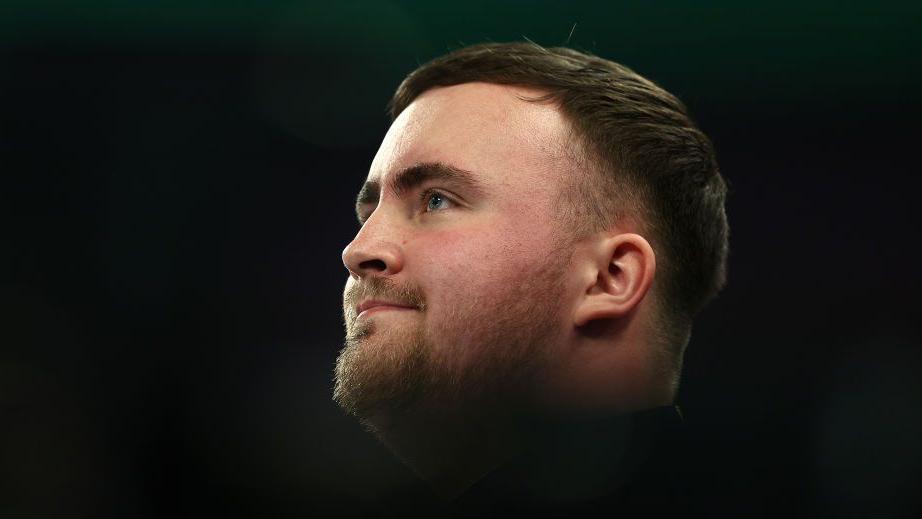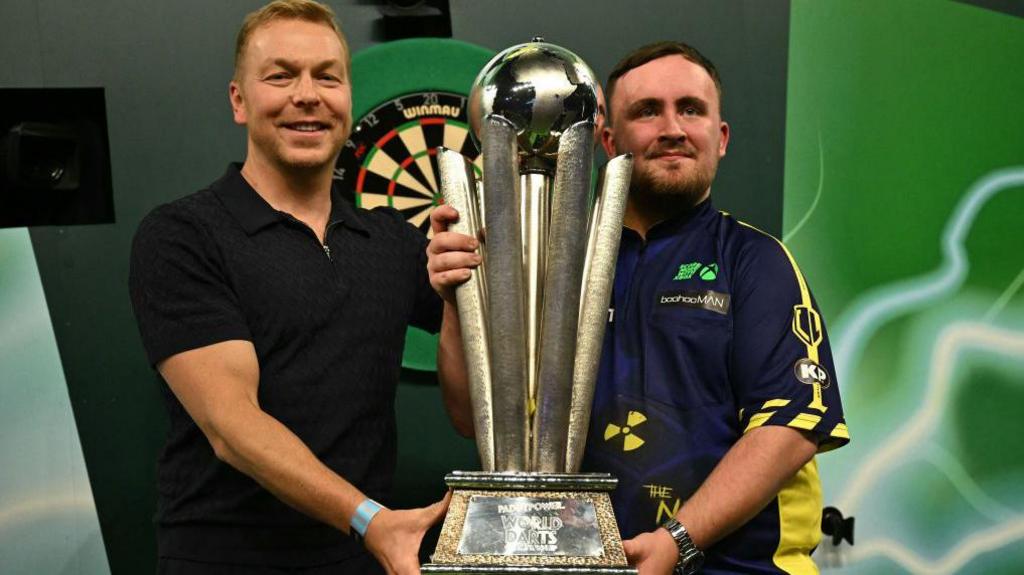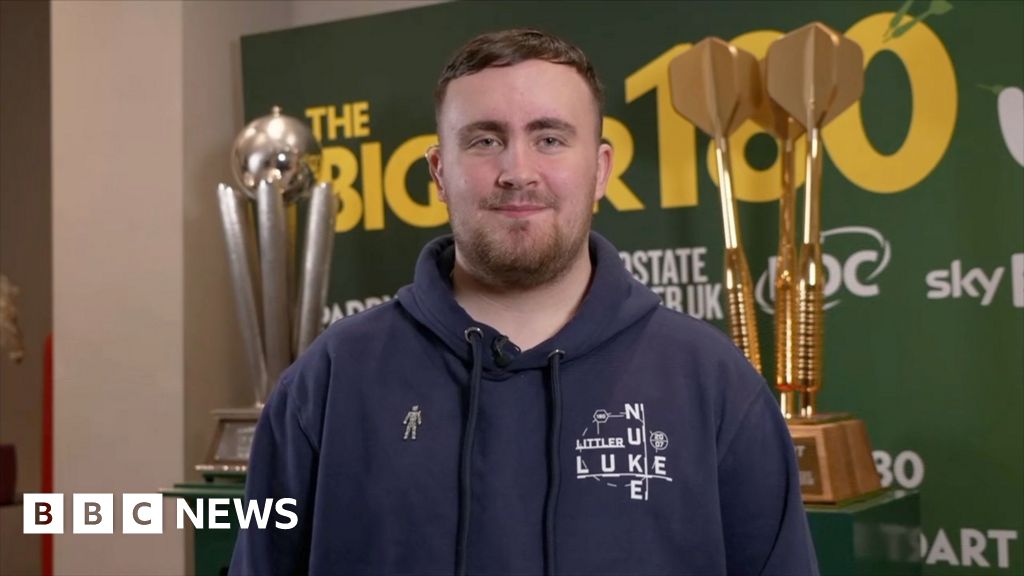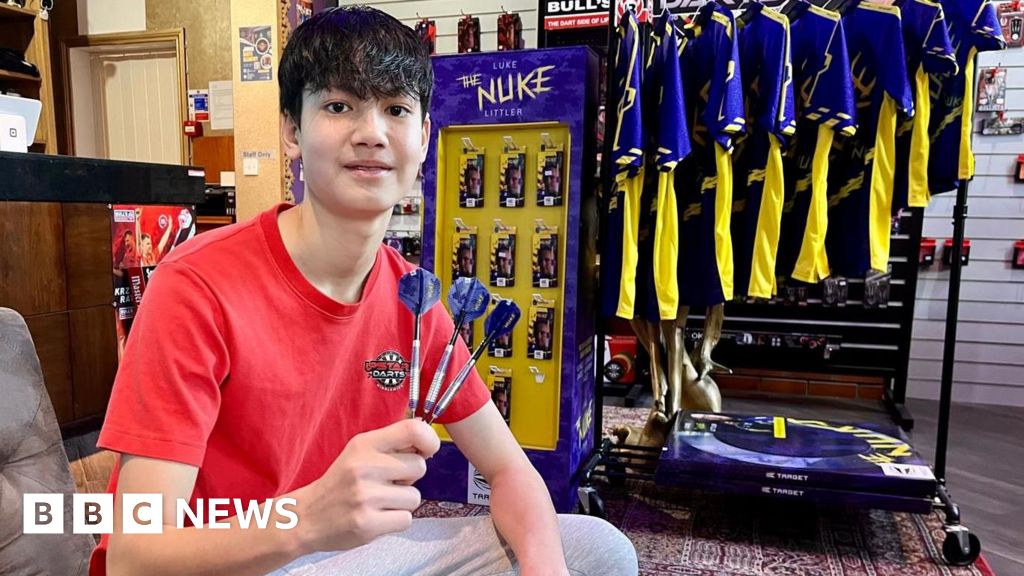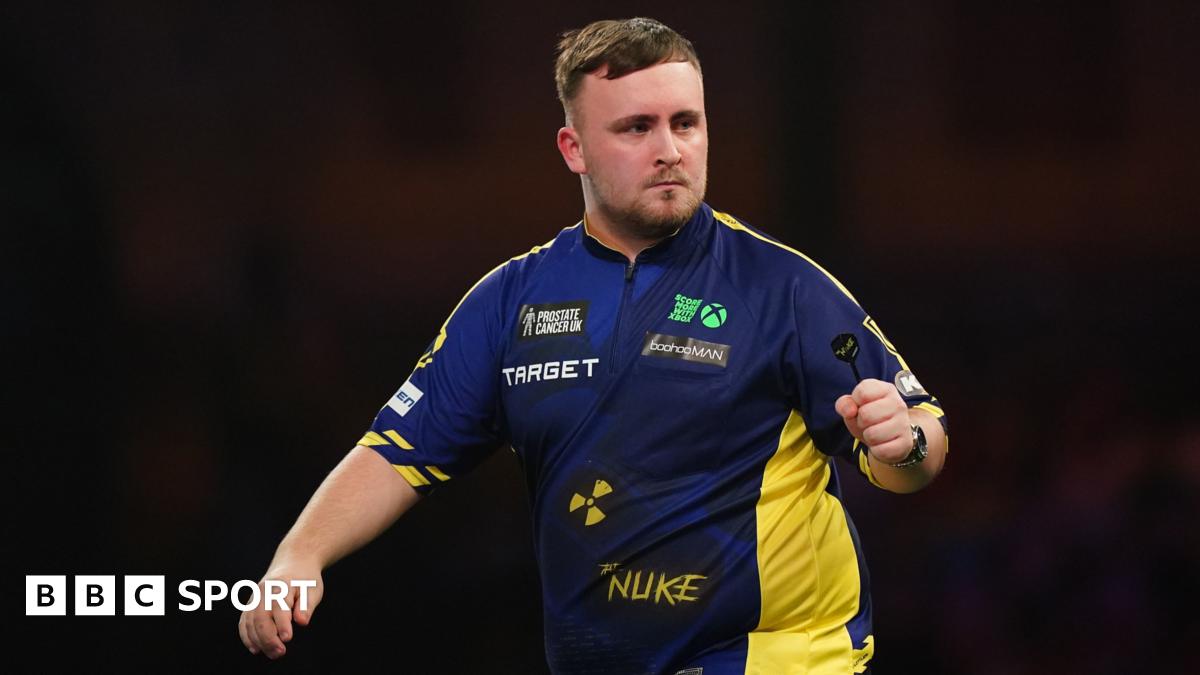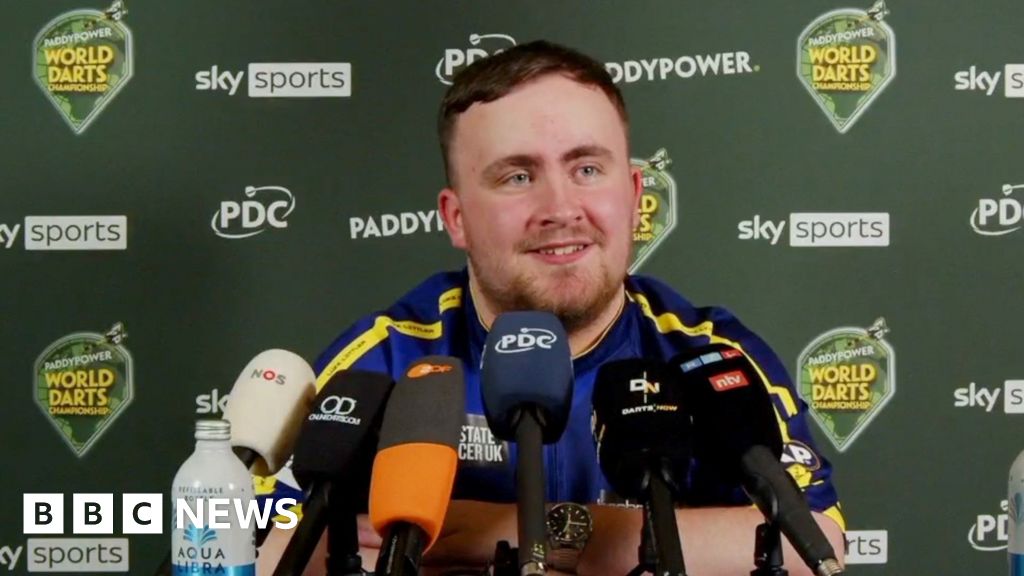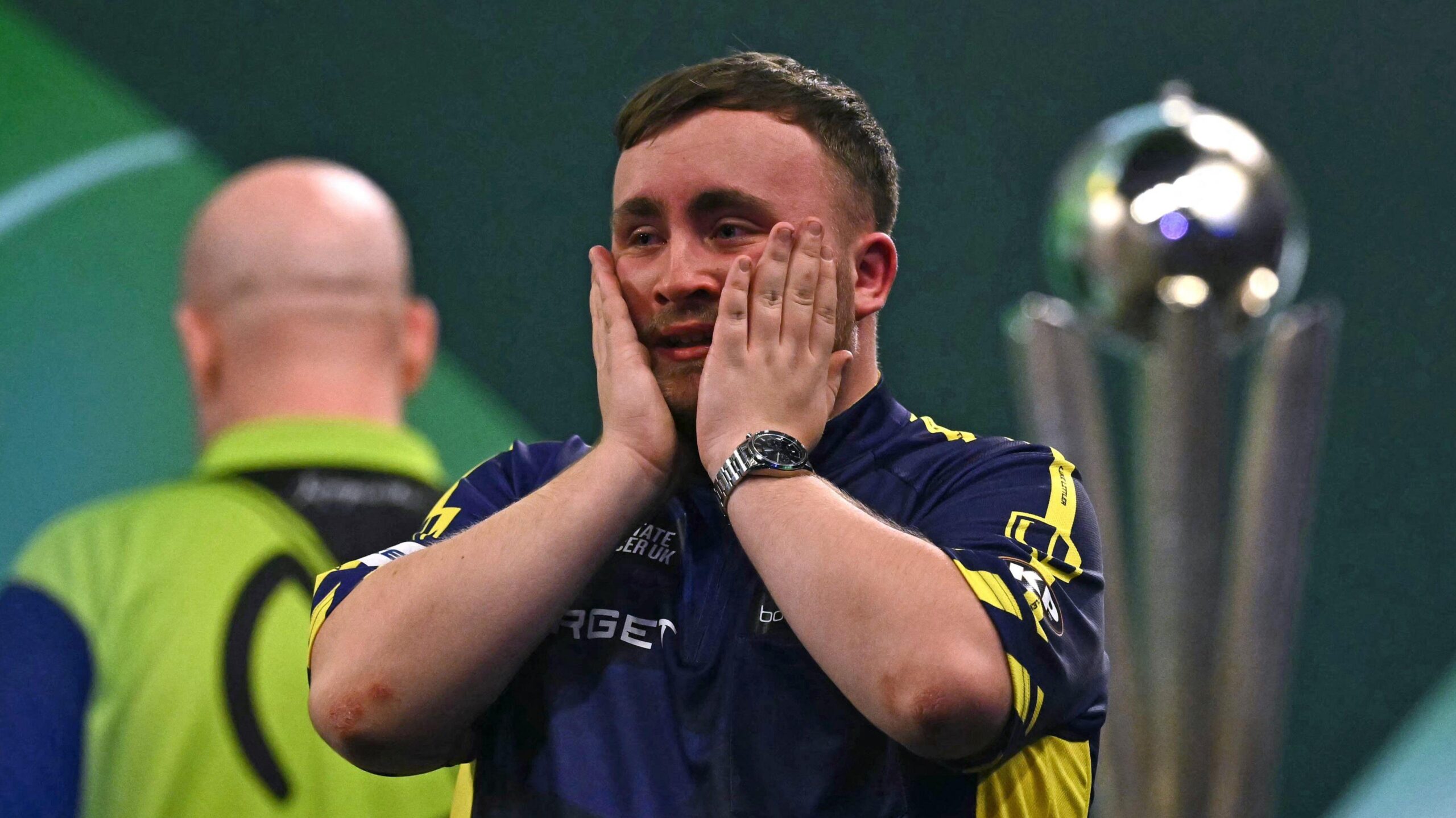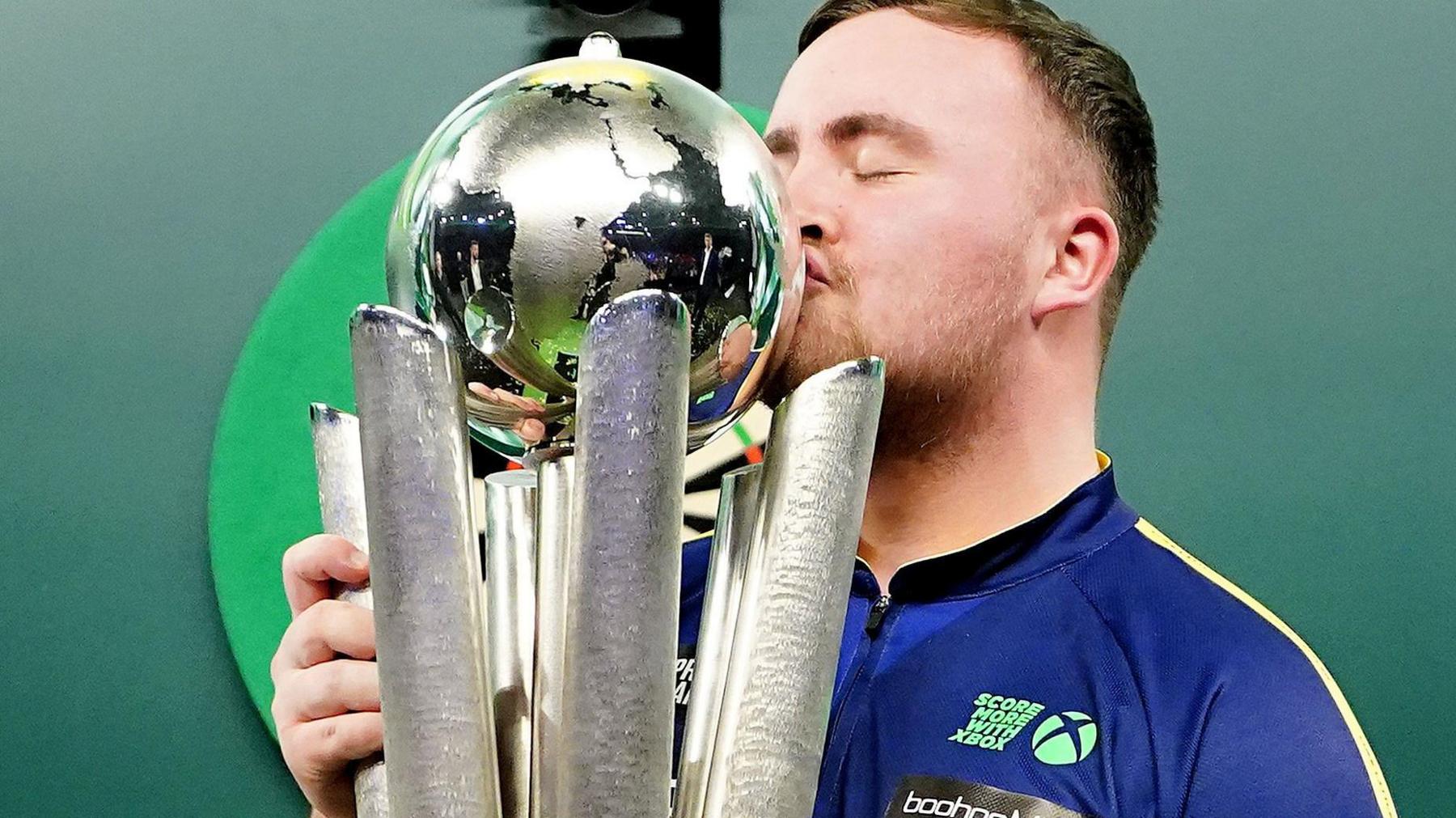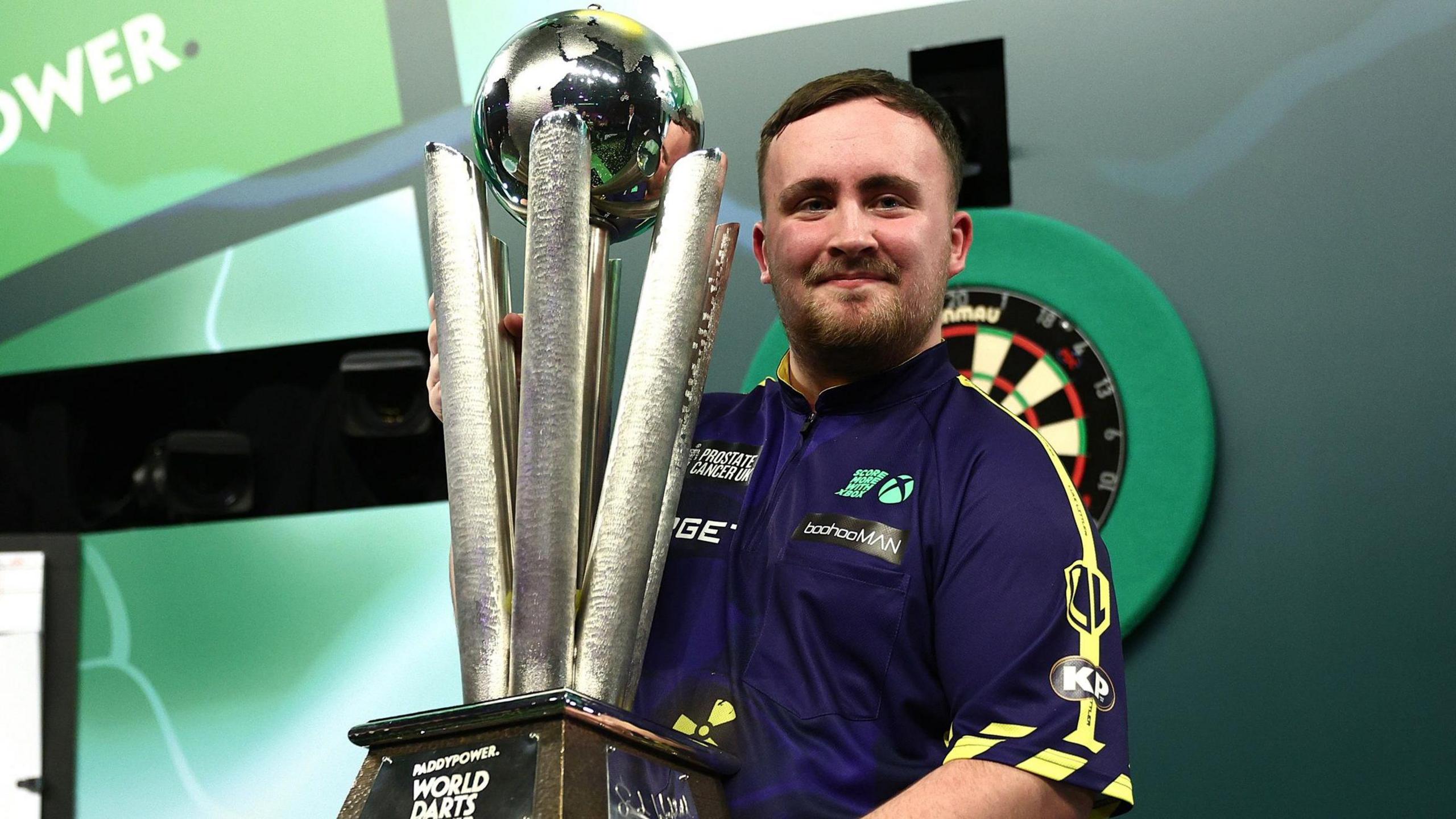-
1 hour ago
“Every 17 years a star is born.”
That was the praise lavished on Luke Littler by his beaten rival Michael van Gerwen after the 17-year-old became darts’ youngest world champion.
Littler crushed the Dutchman 7-3 in the PDC World Championship final to cap off an incredible 12 months in which he has helped the sport’s profile rocket and become a household name.
So, what makes him so good? We look at the combination of mindset, skill and talent that has taken ‘The Nuke’ to the very top.
Mentality: ‘Cool, calm and collected under pressure’
Darts is a sport where you just cannot afford nerves to get to you – a tremble is often the end of a treble.
What sets Littler apart from his rivals is the fact he has been able to master essential calmness at such a young age – and amid an explosion of interest in the sport and him as a direct result of his arrival on the big stage a year ago.
“It’s like water off a duck’s back really, the way he just sort of takes it all in his stride,” sports psychologist and former women’s world number one darts player Dr Linda Duffy told BBC Sport.
“It’s almost like he’s not really 100% sure of what’s going on around him. He’s in that sort of bubble where he’s just thinking about what he needs to do, which is fantastic.
“He’s certainly very cool, calm and collected under pressure.
“What a lot of people who don’t play darts don’t understand is how difficult it is to play. You’ve got all this adrenaline, all the emotions whirling round inside you and you have to stay as steady as a rock to throw that dart properly at the target.”
Littler admitted he had felt nervous after going 2-0 up in Friday’s final but told himself to “just relax”.
The only time he has really let any pent-up emotions spill over in the past year was after his opening win over Ryan Meikle last month, when he became tearful during his post-match interview and sought out hugs from his parents.
It was, perhaps, one of the few times he has looked more like his age.
His lifestyle away from the oche, though, is much more in line with plenty of teenagers – video games, football, fast food – and it is this that could also be playing a part in his mental strength, according to Duffy.
“This all helps him when it comes to having to cope with pressure because he knows how to relax and get some downtime in,” she said.
Littler’s mental approach is founded on a “very deep and absolute trust” in his ability, according to sports psychologist Martin Perry.
“What he’s doing all the time, he’s trying to fine-tune the feeling to get into the quality of focus and concentration where it feels like everything’s happening automatically,” he said. “You’re playing unconscious darts and you’re scoring big and making checkouts.
“Luke’s calmness is really invaluable in allowing him to stay in a bubble of high-focus concentration, which means he can repeat high-scoring sequences regularly.”
Relentless scoring power – despite ‘terrible’ maths
It is Littler’s scoring power when under pressure which has stood out in this tournament.
If trebles are for show and doubles for dough, he has both bases covered.
Even that rare bout of nerves in the 3-1 win over Meikle culminated in him creating more history.
The teenager was in tears through a mixture of relief and satisfaction after hitting a record 140.91 set average – taking 32 darts to complete the set, when the minimum possible is 27.
His pace of play and shot selection, sometimes taking an alternative route to the norm, has even caught out seasoned darts ‘spotters’ on TV coverage as they alert directors to the next camera angle.
He hit four nine-darters last year, including in the Premier League final – one of 10 titles in his debut professional season – and revels in taking out the highest possible checkout of 170, a crowd-pleasing treble 20, treble 20 and bullseye known as ‘The Big Fish’.
Littler is lethal on double 10, which also acts as a back-up shot if he misses double tops, while others might prefer double eight or 16 on the opposite side of the board.
Despite his quick thinking, he has admitted to being “terrible” at maths at school.
“It’s just the longer you practise, the quicker you get to know checkouts, scoring and finishing up and laying up your shots and you know what to go for. So the more you play, the more you get used to it,” he said.
There has been plenty of play, having started throwing magnetic darts aged just 18 months and moving to a proper board by the age of five.
Smashing the stats
Despite his young age, Littler was only the seventh player to reach back-to-back PDC world finals.
And after competing in two tournaments at Alexandra Palace, only seven other players have more 100-plus averages in matches.
He has won 12 of his 13 matches on the biggest stage, hitting the three-dart ton figure in 10 of those.
Last year, he smashed the overall record for maximum 180s, hitting a total of 771 since the last World Championship concluded to top Michael Smith’s mark of 714 in 2022.
He has comfortably hit the most 180s in this year’s competition, with 64 before the final being five more than the combined total of fellow semi-finalists Chris Dobey and Stephen Bunting.
“He really is a breath of fresh air, and he’s given me the enthusiasm to watch darts again because I didn’t watch it for a few years after I retired, I wasn’t interested,” 16-time world champion Phil Taylor told BBC Radio Four.
Putting in the hours despite ‘not practising much’
Littler has said in the past that he does not practise much, sometimes training for as little as 20-30 minutes a day.
But that does not mean he has not put in the hours to get to where he is and make the most of his natural talent.
“He’s spent thousands of hours losing against seasoned campaigners in darts and county players,” his former coach Karl Holden said, when asked what had made Littler so good.
“You need to learn to win, and to win you’ve got to learn to lose, and when you lose you don’t like it. That’s when you start winning.”
Duffy also pointed to those hours as being one of the keys to Littler’s calmness.
“They say ‘oh Luke Littler is so young, he’s so good, he’s only 17’. We’ve seen footage of him playing darts since he could barely walk… so he’s been playing darts for about 15 years,” she said.
“As soon as he was old enough to go into junior tournaments, development tour tournaments, his parents let him go and play. He’s got a wealth of experience, although he’s only young.
“People think he’s just walked out of his front room and, you know, gone to the Ally Pally stage and he’s beating everyone. It isn’t really that, there has been a build-up to this point.
“The more you play, the more you learn to control your nerves.”
‘£500,000 richer, but feet firmly on the floor’
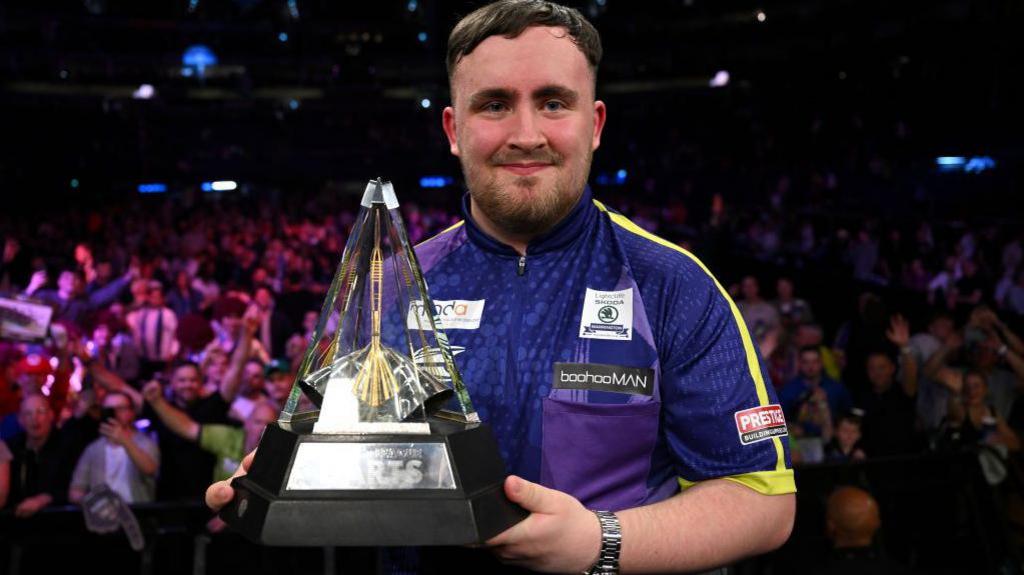
Littler’s journey at last year’s PDC World Championship captured the public’s imagination, with the final becoming the most-watched sports event outside football in Sky Sports’ 34-history.
A media whirlwind ensued, endorsements soon followed and youngsters began picking up arrows at a rapid rate.
He firmly took the limelight from those at the top of the sport, with world number one Luke Humphries joking people kept realising they were talking to the ‘wrong Luke’ when speaking to him.
Littler earned more than £1m in prize money last year in a trophy-laden season but appears to have remained grounded – even if his eyes widened considerably while he took in the announcement of the £500,000 prize he banked on Friday.
“It sounds a bit cliche but the family will never forget where they’ve come from. He’s earned a lot of money really fast but has his feet firmly on the floor,” said Garry Plummer, the boss of sponsors Target Darts, who first signed a deal with Littler’s family when he was aged 12.
“There are two Luke Littlers. He’s quiet and he’s humble, and then he gets on that stage and he wants to entertain. He’s like a seasoned pro.”
What next, and when are 2025’s other big darts events?
Darts never stops – meaning Littler has plenty of opportunity to add to his growing silverware collection. Here are the dates for your diary:
Masters: 30 January-2 February
Premier League: 6 February-29 May
UK Open: 28 February-2 March
World Cup of Darts: 12-15 June
World Matchplay: 19-27 July
World Grand Prix: 6-12 October
European Championship: 23-26 October
Grand Slam of Darts: 8-16 November
Players Championship Finals: 21-23 November

